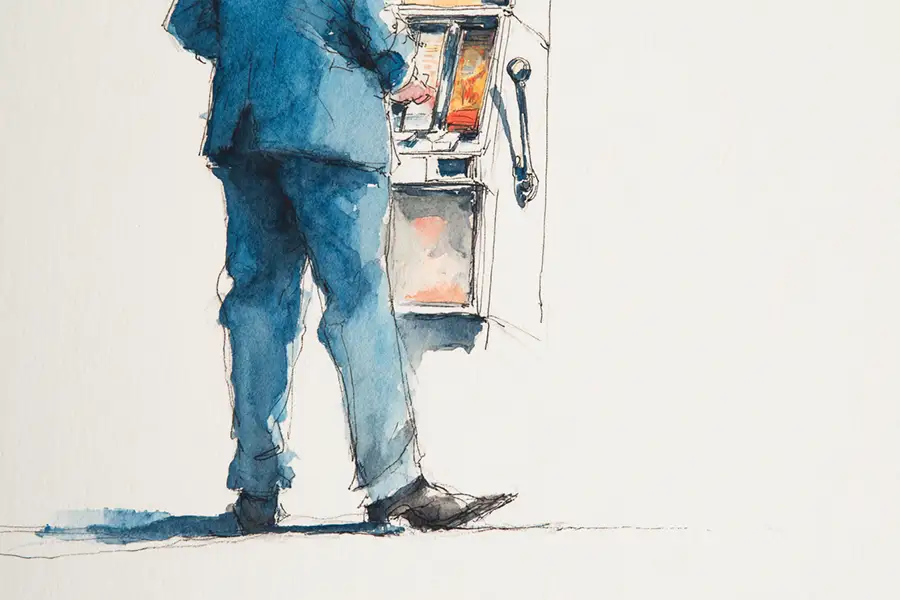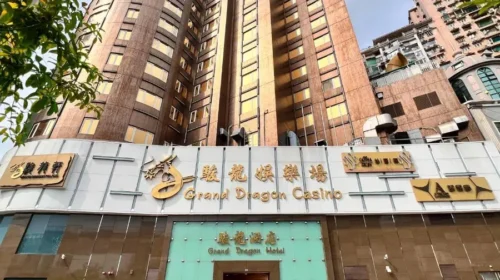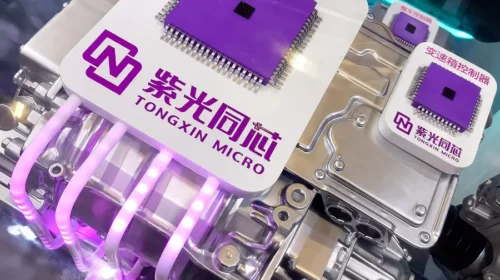Macao’s end of an era, and a ghost ship in search of a business

“There are obviously a lot of people who do not believe that Qudian is going to do something smart with the money going forward, or they do not believe that the money is actually there.”

By Doug Young & Rene Vanguestaine
Some moments signal more than just a headline — they mark the definitive end of an era. We are seeing two such stories unfold now. The first is in Macao, where the final curtain is falling on the city’s so-called “satellite casinos,” representing a decisive turn in its character. The second is the curious case of Qudian, a company that fascinates us, a corporate ghost ship floating on a sea of cash but without a map, a crew, or a destination.
The closure of Macao’s last remaining satellite casinos is a deeply symbolic event. For those unfamiliar with the term, these were casinos operated by licensed gaming companies within properties, like hotels, that lacked their own gaming permits. This model was once common, a relic of a freewheeling past when Macao more closely resembled the gangster-dominated early days of Las Vegas. The city’s new 2022 gaming law has now rendered these arrangements financially unviable, and with their demise, a chapter of the city’s history, often associated with criminal activity, is closing for good.
We see this as the latest and most logical step in a long-running campaign instigated by the Chinese government to make Macao more corporate, cleaner, and more respectable. Beijing’s concerns have been mounting for years. Gambling is illegal on the Mainland, yet there was a clear sense that too many Chinese citizens, including government officials and businesspeople, were wagering sums in Macao that their legitimate occupations could not justify.
More critically, the city became a notorious conduit for money laundering. China has long imposed strict capital controls, limiting individuals to converting just $50,000 per year. For those wanting to move larger sums out of the country, whether sourced legally or through illicit means like bribery, the casinos offered a way. This explains the immense pressure from Beijing for Macao, a part of China since 1999, to clean up its act. The first major move was the 2021 dismantling of the “junket” system, which saw operators like the massive Sun City scout for wealthy mainlanders to gamble away their fortunes. The crackdown on satellite casinos was the inevitable next step.
From an investor’s perspective, the picture is mixed. For the publicly traded casino giants, there is a small plus: they can now consolidate their licensed gaming tables into their own properties without needing to share profits. However, we believe the period of substantial growth for Macao is over. The market has matured, gaming revenue is no longer growing, and the broader Chinese economy has been underperforming for nearly five years.
The government’s push to diversify Macao into a Las Vegas-style destination — with international shows, conferences, and other events — has had only limited success. While Las Vegas attracts hordes of visitors who never touch a casino table, Macao is struggling to replicate that model. Furthermore, it faces stiff competition from other regional gambling hubs like Singapore, which has the added benefit, in the eyes of some, of not being in China. We expect some growth, but not the kind of explosive expansion seen in the past.
A company awash in cash, but lost at sea
Our attention then turns to Qudian, a company that has cycled through several lives since it first took the Chinese financing world by storm a decade ago by lending to students. After a government crackdown forced it out of that business, it has serially pivoted — first to education, then to ready-made foods, and most recently to last-mile delivery in Australia and New Zealand. It has now announced its exit from that venture as well, citing stiff competition.
Despite this string of failures, Qudian has a market value of nearly $500 million, largely because it is sitting on an astonishing $800 million in cash, a war chest accumulated because its founder wisely invested the company’s money in financial products. How should one look at such a company? We would stay away from it until it has found its purpose in life. Everything it has done since its original lending business appears, to us, like a series of half-cooked meals, launched without a real understanding of the competitive landscape.
Given the founder’s apparent success at investing, why not turn the company into a dedicated investment fund? The market’s verdict is clear in the valuation gap. The fact that a company with $800 million in cash trades for just $500 million tells you that investors either do not believe the money will be used smartly going forward, or they do not believe the money is actually there.
There is another angle: a slow-motion privatization. Qudian has been buying back its shares at a steady clip, repurchasing about a third of them over the last three years. While major Wall Street banks appear as top shareholders, we believe they are acting as custodians for professional investment firms and hedge funds. These investors are likely betting on an eventual privatization offer. Buying a company for $500 million to get its $800 million in cash is an interesting play, though there is no guarantee on the final buyout price. While a premium to the stock price is typical, it may not reflect the full cash value.
This leads to our final observation: why prolong the pain? If share buybacks are the best use of capital, then the company should simply finish the job and take itself private. We think the only other explanation is that the founder is keeping shareholders content just long enough to find a fourth way to destroy value, perhaps by chasing the next hot trend, be it AI, biotech, robotics, or autonomous driving. We will be watching this space.
About China Inc
China Inc by Bamboo Works discusses the latest developments on Chinese companies listed in Hong Kong and the United States to drive informed decision-making for investors and others interested in this dynamic group of companies.
Subscribe to China Inc on your favorite app:








